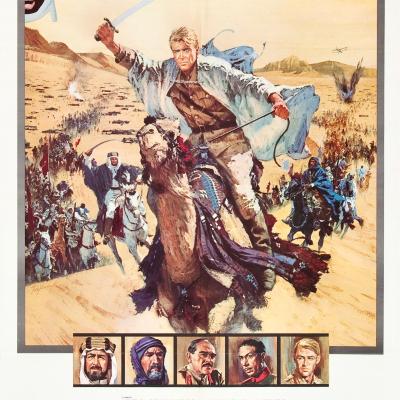
A Film and its Era: Lawrence of Arabia
Once upon a time, Lawrence of Arabia, a film by David Lean. (1962)
Inspired by his life and his Arabic autobiography "The Seven Pillars of Wisdom," David Lean's film tells the epic story of the English intelligence officer who led the Arab uprising against the Ottoman Empire between 1916 and 1918. At the end of the 1950s, Britain and France went through a painful process of decolonization, while Pan-Arab nationalism triumphed in the entire Arab world. Five years after the Suez-Crisis, the film is a sort of proud and nostalgic counterpoint that tells the painful epic of the British “midwife” to Arab nationalism. Lawrence, who would later take a very active part in post-war negotiations helped establish the three Arabic kingdoms of Saudi-Arabia, Transjordan and Iraq. David Lean together with his screenwriter, the pacifist playwright Robert Bolt, depicted Lawrence as a rebel against his own general staff but also a man devoured by war and consumed by remorse - almost an effigy of the "wild youth" who do not respect the establishment and upset the world of literature, theater, film and music.
David Lean's recipe includes: majestic landscapes as the main star of the film , long panorama shots, protagonists with extreme and torn personalities and haunting music.
Omar Sharif, who was the super-star of Egyptian cinema appears alongside Peter O'Toole as Lawrence to become the only Egyptian movie star to make it to international fame to this date.
In 1963, Lawrence of Arabia was nominated for 10 Oscars, of which it won 7, including those for best film and the best director.
